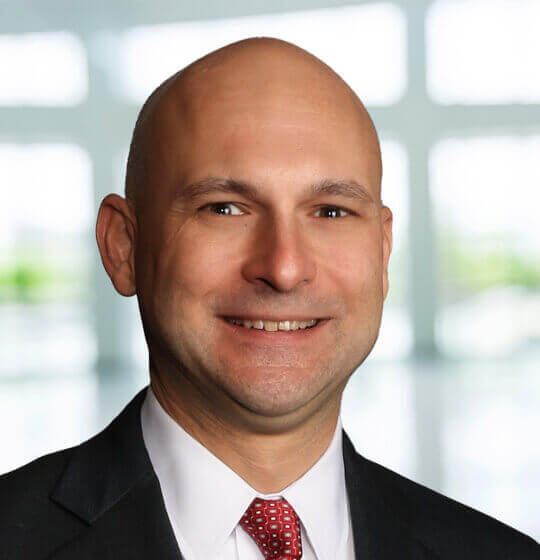On June 29, 2023, the Supreme Court of the United States revived an employee’s religious discrimination lawsuit, unanimously holding that to deny a sincere religious accommodation request under Title VII of the 1964 Civil Rights Act, employers must show that the burden of granting it “would result in substantial increased costs in relation to the conduct of its particular business.”
Quick Hits
- The Supreme Court held that to deny a religious accommodation as an “undue hardship” requires an employer to show that it “would result in substantial increased costs in relation to the conduct of its particular business.”
- The impacts on other coworkers may be relevant to the test to the extent those impacts affect the conduct of the employer’s business. Coworker animosity towards a particular religion, religion in general, or accommodating religious practices, however, cannot be considered as part of an undue burden analysis.
- The Supreme Court left it to trial courts to apply the new standard on a case-by-case basis.
In the unanimous ruling in Groff v. DeJoy, the Supreme Court upended a longstanding standard that had allowed employers to deny a religious accommodation under Title VII as an undue hardship, by claiming it would impose a more than “de minimis” cost. The ruling sides with a former postal employee who had brought Title VII claims against the U.S. Postal Service (USPS) over its refusal not to schedule him to work on Sundays, his Sabbath day.
The high court stated that the more-than-de-minimis standard stemming from its 1977 decision in Trans World Airlines Inc. v. Hardison was a “mistake” and took the case as an opportunity to clarify that Title VII requires a greater showing from employers to claim an undue hardship. The Court declined to state what facts would meet this heightened standard, leaving it to the lower courts to apply on a case-by-case basis.
Background
Former USPS employee Gerald Groff claimed that as a Christian, it was against his religious beliefs to work on Sundays. Despite requests to not work on Sundays, Groff’s employer continued to schedule him for Sunday shifts and sought volunteers to cover Groff’s Sunday shifts, though it was not consistently able to do so. As a result of Groff’s absences, other employees were required to work more Sundays and make deliveries that would have otherwise been completed by Groff. During off-peak months, Groff’s assignments were redistributed to other mail carriers. The employer imposed progressive discipline for his absences short of termination, and eventually, Groff resigned.
Groff sued the USPS alleging it violated Title VII of the Civil Rights Act of 1964 by failing to accommodate his religious practices. He argued that the high court should overturn its holding in Hardison, in which the Court stated that an undue hardship for employers is anything more than a de minimis burden. Groff further argued that the Supreme Court should hold that an employer cannot demonstrate an undue hardship by relying on the burden suffered by other employees who may need to work more to accommodate the religious worker’s absences.
The Decision
In the Court’s opinion, Justice Samuel Alito stated that the standard from Hardison has been understood to mean something greater than what “de minimis cost” means in the “common parlance.” But the Court rejected Groff’s argument that undue hardship requires the employer to face “significant difficulty or expense.” Instead, the high court stated, Title VII requires that to find an “undue hardship” is a fact-specific inquiry that focuses on whether “a burden is substantial in the overall context of an employer’s business.”
In applying the test, the high court stated that courts must do so in a “manner that takes into account all relevant factors in the case at hand, including the particular accommodations at issue and their practical impact in light of the nature, ‘size and operating cost of [an] employer.’”
Further, the high court held that an accommodation’s impact on the coworkers of the employee requesting the accommodation may be relevant to the extent that the impacts on other coworkers affect the conduct of the business. In Groff’s case, the high court stated “it would not be enough for an employer to conclude that forcing other employees to work overtime would constitute an undue hardship.” It would be necessary to consider the employer’s other options, “such as voluntary shift swapping.”
The high court went on to note that undue hardship cannot be based upon coworker animosity towards making religious accommodations or towards a particular religion or religious practice. Indeed, the high court stated, “[i]f bias or hostility to a religious practice or a religious accommodation provided a defense to a reasonable accommodation claim, Title VII would be at war with itself.”
Justices Sonia Sotomayor and Ketanji Brown Jackson issued a concurring opinion that agreed that the Hardison de minimis standard needed to be reexamined. But they noted that the impact to other employees is relevant. According to justices Sotomayor and Jackson, because the conduct of a business “plainly includes the management and performance of the business’s employees, undue hardship on the conduct of a business may include undue hardship on the business’s employees.”
Next Steps
The holding in Groff provides additional guidance for employers on how far they must go to accommodate employees’ sincerely-held religious practices, though it provides for a context-specific standard that necessarily will be developed by lower courts on a case-by-case basis. Based on the facts and circumstances of this case, the Supreme Court did not need to address the preliminary issue in many religious accommodation situations regarding whether or not the employee’s proffered religious belief was indeed “religious” and “sincerely held.”
The ruling does clarify that employers may point to the burden on coworkers who experience additional workplace burdens as the result of an accommodation to demonstrate an undue hardship but only to the extent that those impacts are connected to the conduct of the particular business and are not tied to religious animosity.
Ogletree Deakins will continue to monitor developments and will provide updates on the Leaves of Absence blog as additional information becomes available.
Follow and Subscribe LinkedIn | Twitter | Webinars | Podcasts










